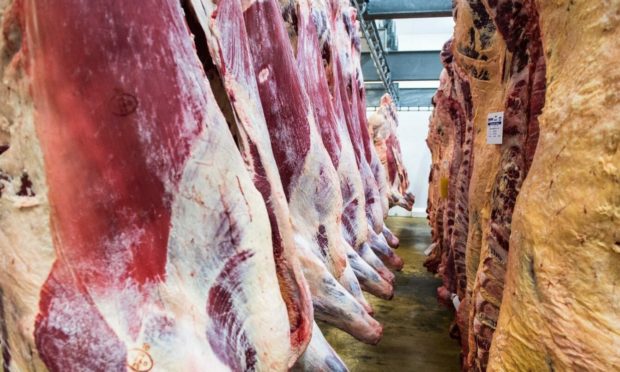A House of Commons committee has called on the UK Government to pursue a veterinary partnership agreement with the EU that would help reduce the regulatory burdens currently faced by British meat and seafood businesses.
In a letter to Defra Secretary George Eustice, the cross-party Environment, Food and Rural Affairs (EFRA) committee appealed for a “pragmatic stance” to exports to the EU which they said would also benefit the movement of food to Northern Ireland.
Extra paperwork and checks at the EU border are now a day-to-day burden for time-sensitive meat and seafood exporters, and EFRA said the veterinary partnership agreement would be the biggest single step that could ease difficulties.
EFRA chair, Neil Parish MP said: “The government has finally set a date for when the playing field will be levelled for British businesses, by introducing checks for EU imports. This deadline must be adhered to – our businesses have been at a competitive disadvantage and this cannot continue.
“However, the government must now take initiative and seek to ease trading friction. A veterinary partnership agreement would reduce the red tape pressure and costs placed on our seafood and meat exporters when trading with their biggest market, and maintain high animal welfare and food safety standards.”
Meanwhile, a new survey by OnePoll1 for the NFU found that 85% of people questioned said they wanted future trade deals to protect UK farmers from being undercut by cheaper, sub-standard food imports.
According to the NFU the survey of 2,000 adults in England and Wales showed the public wanted to see Britain’s climate-friendly, high-welfare way of farming championed.
NFU president Minette Batters said: ““The survey results are clear – no one wants to see UK farmers being put out of business by food imports that fail to meet our own high animal welfare and environmental standards.
“Yet this remains a real risk, especially if future trade deals with the likes of New Zealand, Mexico, Canada and the USA – all major exporters – allow tariff-free access to our markets. It’s hard to not think the Australian deal has set a precedent but multiple deals in the same vein will have serious and lasting impacts on Britain’s ability to produce its own food.”


